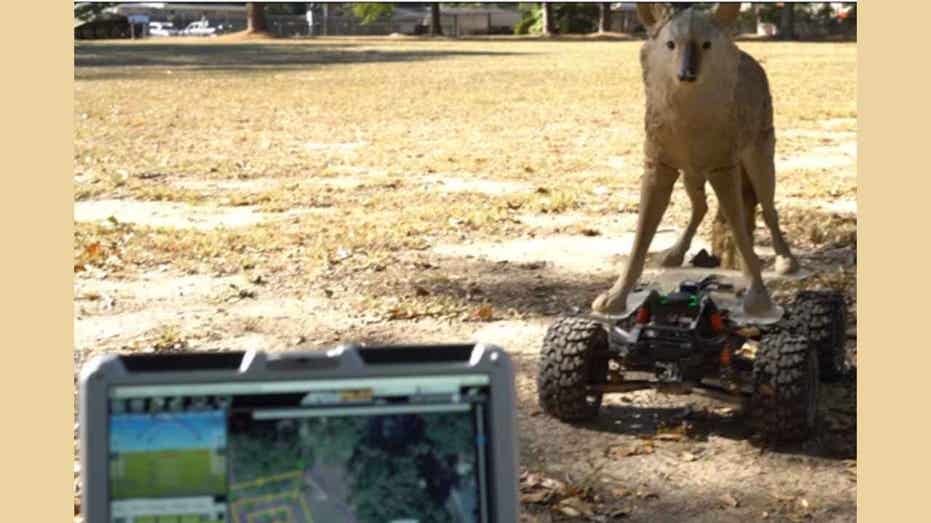📰 US Army tests robot coyotes to prevent catastrophic bird strikes

The U.S. Army Engineer Research and Development Center (ERDC) has developed robot coyotes for airfield wildlife control, aiming to address the dangers posed by animals on runways. Traditional methods like drones and dogs have limitations as wildlife quickly adapts. The ERDC collaborated with wildlife biologists and the USDA National Wildlife Research Center to create robot coyotes that mimic real coyotes to scare off animals. These robot coyotes, equipped with plastic coyote dummies, have been successful in deterring birds and other animals during tests at military airfields. Future versions may include advanced features like artificial intelligence, cameras, and sensors to enhance their effectiveness in managing wildlife hazards at airfields and potentially commercial airports.
📰 Is Google Drive safe for backup? Pros and cons

Google Drive is a popular cloud storage service known for its convenience and integration with other Google products. When considering it as a backup solution, it’s crucial to assess its strengths and limitations. The article explores the security, privacy, functionality, and suitability of Google Drive as a backup tool. Google Drive employs robust security measures like 256-bit AES encryption and two-factor authentication, but it is still vulnerable to security threats like phishing attacks. Users should regularly audit account access, use strong passwords, and consider client-side encryption for higher privacy levels. While Google Drive offers strong security and seamless integration, it may have limitations for advanced backup needs, such as scheduled backups and full system image recovery. Users can enhance its capabilities with third-party backup software. Ultimately, the best storage solution depends on individual requirements and data management preferences.
📰 Could underwater living be the next frontier for human habitats

The article discusses the growing interest in underwater living as a solution to environmental challenges and a new frontier for exploration. While lunar and Martian colonies are in the spotlight, attention is shifting towards the ocean floor, which is closer to home and remains largely unexplored. Underwater habitats have a history dating back to the 1960s when Jacques Cousteau demonstrated humans could survive underwater for short periods. Recent advancements, such as the development of modular habitats by British company DEEP, are making long-term underwater living a realistic possibility. These habitats are designed to withstand the intense pressure of the deep sea and offer a glimpse into the future of underwater missions. The Vanguard underwater habitat, a prototype by DEEP, is a compact module for short-term missions that supports three people and serves as a testing ground for new designs and technologies. The larger Sentinel subsea habitat system, scheduled for deployment by 2027, will provide comfortable living quarters and research facilities for longer stays at greater depths, marking a significant step towards establishing a permanent human presence beneath the sea.
📰 Spying camera vest deters attackers by recording them in action

A recent survey revealed that 92% of women in the U.S. feel concerned for their safety while running, with half fearing physical attack and over one-third experiencing harassment. To combat this, Urban Eyes offers a high-visibility safety vest with built-in cameras to empower individuals during outdoor workouts. The vest features front and rear cameras as a visible deterrent to potential harassers, with easy-to-use controls and local storage of footage. Urban Eyes is designed for comfort and practicality, with adjustable sizing, pockets for essentials, and no need for app downloads or Wi-Fi connections. Priced at around $204, the vest provides a sense of control, confidence, and peace of mind for users seeking enhanced personal safety while exercising.
📰 The data broker opt-out steps every retiree should take today

The article discusses the tragic events in Minnesota where a gunman used people search websites to target lawmakers and carry out deadly attacks. The gunman had a list of 11 data broker sites in his vehicle, which he used to gather personal information about his victims. These data broker sites, such as TruePeopleSearch and Whitepages, sell personal data to anyone with a credit card, creating real-world risks for individuals. The data broker industry, worth $200 billion, collects detailed profiles including health details, financial information, and location data, which can be used for financial fraud, safety threats, and social discrimination. The article also outlines steps individuals can take to remove their information from data broker sites, though the process is challenging and time-consuming.
In summary, the article highlights the dangers of personal data being sold without consent by data brokers, the risks it poses to individuals’ privacy and safety, and the difficulties in removing one’s information from these sites. It emphasizes the importance of taking control of one’s data and suggests professional data removal services as a more efficient option.
0개의 댓글